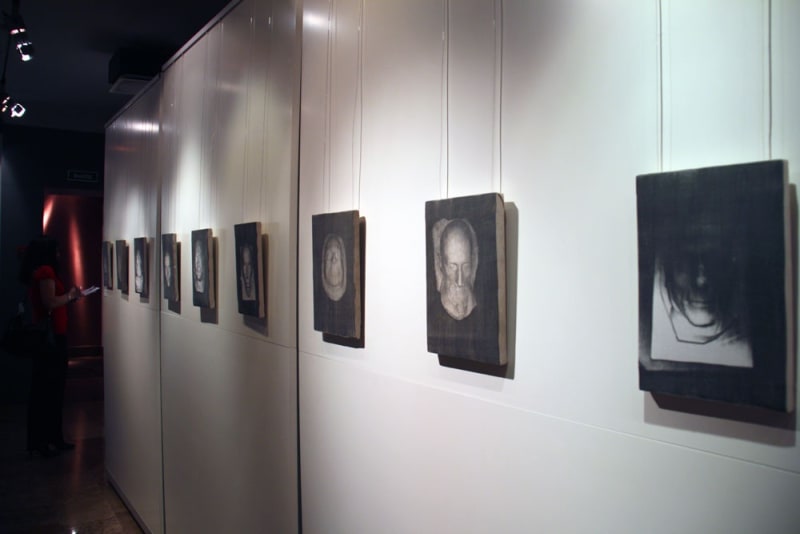Называя так выставку и приписывая часть работ вымышленным авторам, Александров полностью серьезен: он создает ту самую школу, в которой нуждается. На самом деле как художник он одинок, ведь последователей в петербургском искусстве у него нет, и традиция комикса, которым он давно занимается, развита плохо.
Павел Герасименко, арт-критик
In giving the exhibition this name and attributing part of the work to fictional authors Alexandrov is completely serious: he creates the very school that is needed. In fact, as an artist he stands alone, because he has no followers in St. Petersburg art and the tradition of comics, in which he has long been engaged, is poorly developed.
Paul Gerasimenko, art1.ru, 17 March 2014
The Leningrad school contribution to Russian art cannot be overestimated. It is the representatives of this school who raised (or rather, created) the traditional Chukotian art and managed to restore the lost (actually, never existed) rock paintings of the ancient northern Jews. They had also identified Guttenberg as the main acting person of European culture and, boldly but with respect, widened the limits of his ‘galaxy’ having offered ingenious self-printing appliances; thus giving a word the status of an image, and to a self-made object the status of a book. And the list of these achievements can be continued.
The school was initiated in the 1970s. The date of its foundation is the day when three beginner artists met in an art studio of L.V. Kabachek, the Honoured artist of the USSA, who said the phrase that made a big impression on the young men. He said: ‘Look, there are no paintings in my studio except this one on the easel; they are all in museums. That is what you should strive for!’ It is no accident that the painting depicting that moment opens a final exhibition of the Leningrad school. Despite the inner unity of the Leningrad school’s paintings, each of its members has its own manner. Ivan Goldenshluger is an artist of the post-war neoclassical art, whereas Konstantin Molosh is an ironic avant-garde artist of Brezhnev’s times, and Yuri Alexandrov is a fastidious intellectual, with a sceptical view on the early-capitalism madness.
Akeksandr Borovskiy
